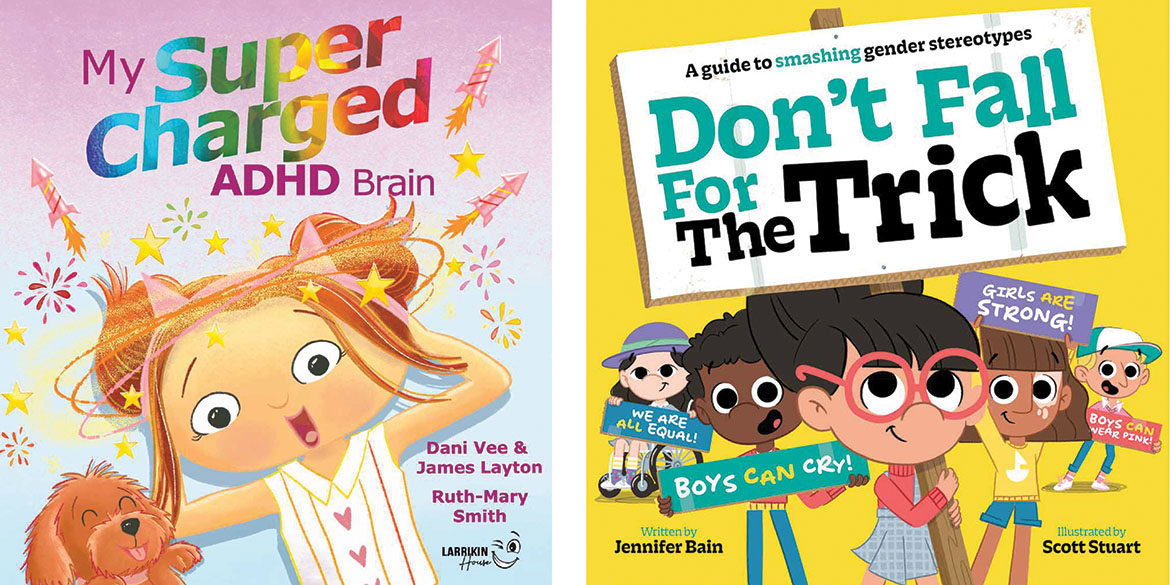By Jessica Sanford
Two new page turners for our little book lovers.
The more we read, the more we learn and the more we learn, the more understanding and tolerant we become about differences. Knowledge is key. Therefore, it makes sense to use entertaining and beautiful picture books as tools to educate our youth. These two are great examples.
My Super Charged ADHD Brain, by Dani Vee and James Layton, illustrated by Ruth–Mary Smith is a bright and fun picture book describing how the young ADHD brain might function. The character in the book explains that all brains are different, for example, science brains and sporty brains, but her brain is more like a race car or a rocket ship with her thoughts firing fast and simultaneously. The book gently explores the challenges of ADHD, for example, losing school shoes and library books and being either too talkative or sleepy in class. It highlights the positives of the ADHD and focuses on creativity, idea generation, friendship, and fun. The font is large and engaging to keep distracted readers entertained. The creators of My Super Charged ADHD Brain all have personal experiences with ADHD and the message is good – uniqueness is to be celebrated, differences tolerated and all of us, no matter what type of brain we have, have valuable contributions to give.
Don’t Fall for the Trick: A Guide to Smashing Gender Stereotypes, written by Jennifer Bain and Illustrated by Scott Stuart is a clever picture book debunking the age–old portrayals of girls and boys as “tricks” to be seen through, challenged and discussed. The tired notions of, “pink is a girl’s colour”, or “boys can’t play with dolls” are simply societies constructs, ingrained over time; restrictive and unnecessary. People can obviously wear whichever colour they choose; they can play whichever sport they choose. Everybody can be strong. One storyline sees children staying with their grandparents and over the course of the weekend they convince Pa that he can, in fact, cook if he wants to and, lo and behold, Gran does have the ability to fix things when she just puts her mind to it. An important lesson here is that if people are told they can’t do something they will start believing that, but when they are told they can achieve, they are smart, they are strong, they can wear whatever they want, they believe that too, and that’s when individuals and, therefore, communities will thrive.
Jessica Sanford is a writer living on the Central Coast. She has a passion for literature and writes fiction and non–fiction. Jessica was the winner of the Wyong Writers’ 2021 Short Story Competition and has also been longlisted for the Furious Fiction prize. She’s currently working on a novel set in rural NSW. jessicasanford.com

